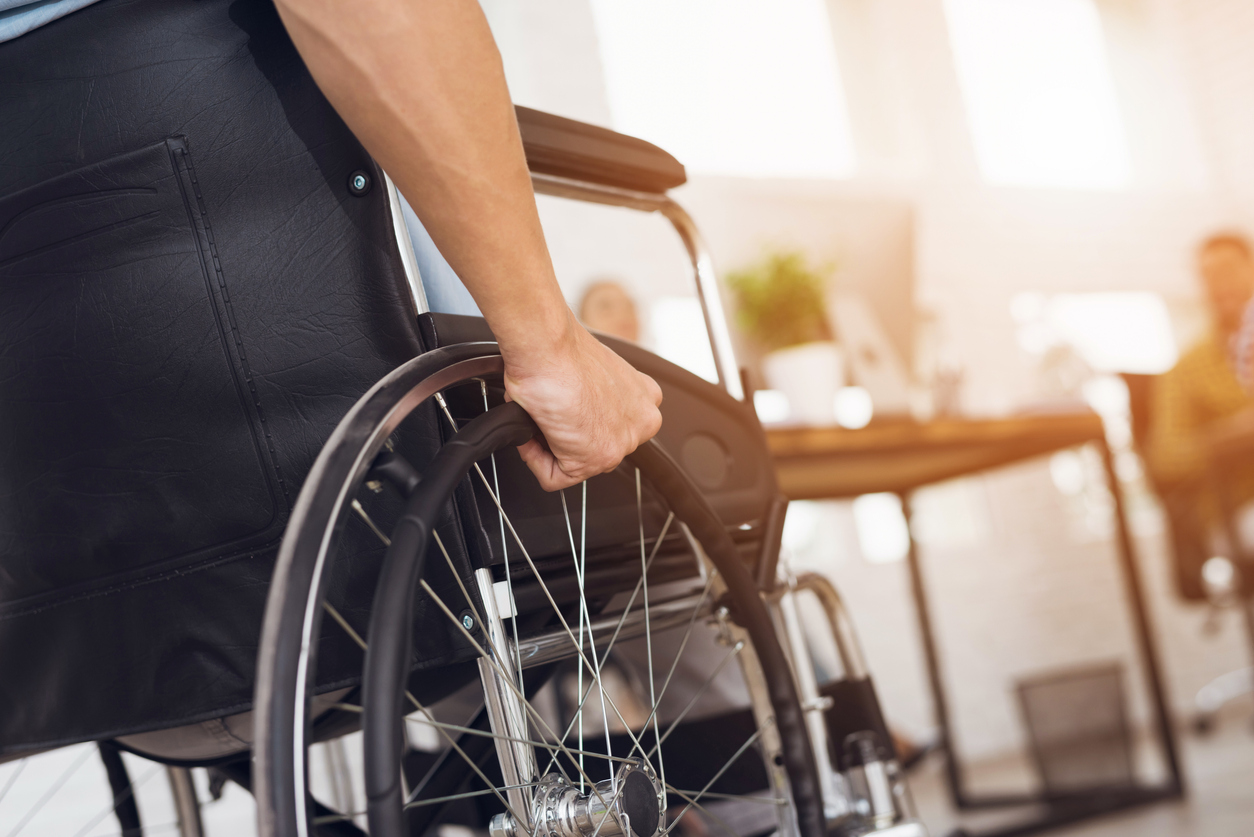Illnesses and accidents can cause someone to become disabled almost instantaneously, but getting assistance for that disability can take a long time. As of 2020, approximately 12 million people between the ages of 18 and 64 receive disability benefits, according to the Social Security Administration (SSA). In Florida alone, more than 3.5 million people are impacted.
The 10 Most Common Disabilities
Many types of disabilities can affect a person’s life and qualify them to receive disability benefits. These are the top 10 disabilities as ranked by the SSA.
1. Musculoskeletal System Injury or Disease
The musculoskeletal system is made of bone, muscle, ligaments, and other tissues that connect these elements. Some of the most prevalent musculoskeletal problems that can cause disability include spinal disorders, arthritis, and carpal tunnel syndrome. These disorders can cause severe pain and make it impossible to work or take care of daily tasks without assistance.
2. Mood Disorders
Mood disorders include mental health concerns such as depression, anxiety, bipolar disorder, and premenstrual dysphoric disorder. Mood disorder can distort a person’s perception of reality, making it difficult to hold a job.
3. Nervous System Disabilities
The nervous system refers to the brain, spinal cord, and nerves. It enables communication between the brain and the rest of the body. Some examples of nervous system disabilities include functional disorders such as epilepsy and degenerative diseases like Parkinson’s disease or multiple sclerosis.
4. Intellectual Disabilities
People with Down syndrome, Fragile X syndrome, fetal alcohol spectrum disorder, and other types of developmental delays may not be able to learn and retain the information needed to function in a workplace.
5. Circulatory System Disorders
Diseases that impact the circulatory system include heart attack, heart failure, stroke, and peripheral artery disease. These health issues may prevent an individual from safely coping with the physical and mental stress of the workplace.
6. Psychotic Disorders
Psychotic disorders make up a small portion of those receiving Social Security Disability Insurance (SSDI) benefits, but the impact these disorders have on a person’s life is profound. Schizophrenia and other psychotic disorders may cause auditory and visual hallucinations, disorganized speech, and catatonic behavior.
7. Other Mental Disorders
“Other mental disorders” may sound vague, but the term describes mental conditions that are not categorized as either mood disorders or psychotic disorders. These may include issues like PTSD and ADHD.
8. Injuries
Being injured in the workplace or in an automobile accident can leave a person disabled either temporarily or permanently. The injured person may not ever be able to return to their former career or work in the same capacity.
9. Organic Mental Disorders
Organic mental disorders are different from traumatic brain injuries. They include brain diseases like dementia, amnesia, and delirium. The memory impairment and loss of cognitive function caused by organic mental disorders can make it impossible to maintain any type of employment.
10. Neoplasms
Neoplasms are abnormal growths that can affect organ function. They may be precancerous, cancerous, or benign, but they are known to spread quickly and can be life-threatening.
What To Do if You Are Disabled
If you’re wondering what medical conditions qualify for long-term disability or what qualifies for short-term disability, the above list is a good place to start. These symptoms may be signs that you will be approved for disability.
If you have an illness or condition that makes it difficult to work, you may be eligible to receive SSDI benefits. Searching for “disability lawyers near me” can help you find the best Social Security disability lawyers to navigate the SSDI system and pursue the benefits you’re entitled to. If your disability was caused by a slip and fall accident or any other incident that was someone else’s fault, it may also be beneficial to consult with a personal injury lawyer.
Contact the Pinellas County Personal Injury Law Firm Of Perenich, Caulfield, Avril & Noyes Personal Injury Lawyers for Help
For more information, please contact the Clearwater and St. Petersburg personal injury law firm of Perenich, Caulfield, Avril & Noyes Personal Injury Lawyers at the nearest location to schedule a free consultation today.
We serve Pinellas County and its surrounding areas:
Perenich, Caulfield, Avril & Noyes Personal Injury Lawyers – Clearwater
1875 N Belcher Rd. STE 201,
Clearwater, FL 33765
(727) 591-3354
Perenich, Caulfield, Avril & Noyes Personal Injury Lawyers – St. Petersburg
2560 1st Ave S,
St. Petersburg, FL 33712
(727) 591-3354
The post What Are the Top 10 Disabilities? appeared first on Perenich, Caulfield, Avril & Noyes Personal Injury Lawyers.






